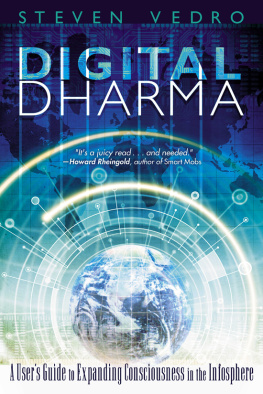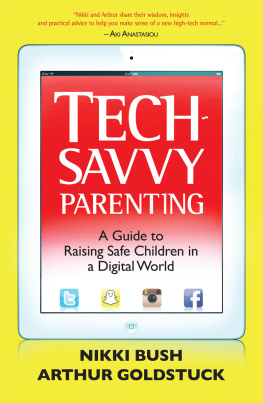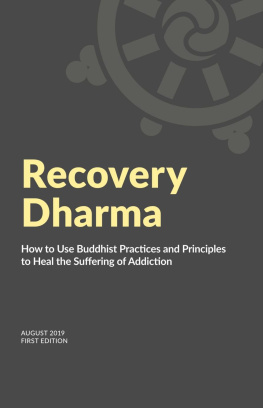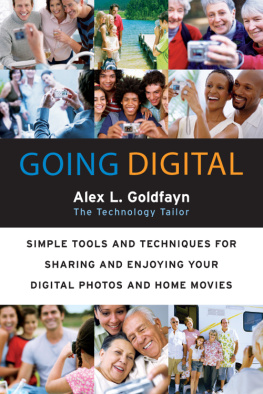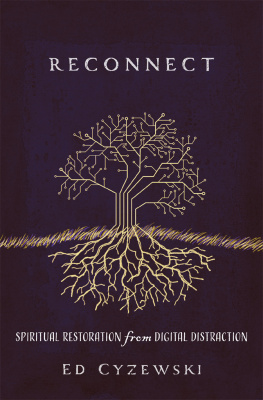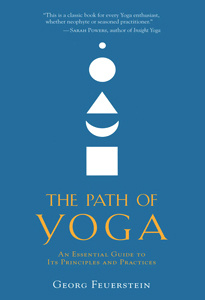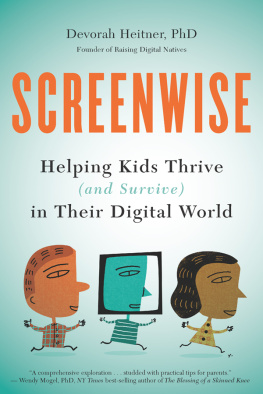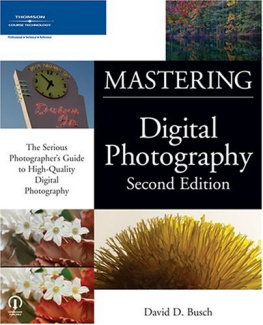

Learn more about Steven Vedro and his work at www.teleconsciousness.blogspot.com/ and http://www.facebook.com/pages/Digital-Dharma-Spiritual-Metaphors-of-Technology/168927409852731
Find more books like this at www.questbooks.net
Copyright 2007 by Steven Vedro
First Quest Edition 2007
Quest Books
Theosophical Publishing House
PO Box 270
Wheaton, IL 60187-0270
Without limiting the rights under copyright reserved above, no part of this publication may be reproduced, stored in or introduced into a retrieval system, or transmitted, in any form, or by any means (electronic, mechanical, photocopying, recording, or otherwise), without the prior written permission of the publisher of this book.
The scanning, uploading, and distribution of this book via the Internet or via any other means without the permission of the publisher is illegal and punishable by law. Please purchase only authorized electronic editions, and do not participate in or encourage electronic piracy of copyrighted materials.
While the author has made every effort to provide accurate telephone numbers and Internet addresses at the time of publication, neither the publisher nor the author assumes any responsibility for errors or for changes that occur after publication. Further, the publisher does not have any control over and does not assume any responsibility for author or third-party websites or their content.
Cover image: Chad Baker/Getty Images
Cover design, book design, and typesetting by Dan Doolin
Library of Congress Cataloging-in-Publication Data
Vedro, Steven.
Digital dharma: a user's guide to expanding consciousness in the infosphere / Steven Vedro.
p. cm.
Includes bibliographical references.
ISBN 978-0-8356-0859-6
1. InternetMoral and ethical aspects. 2. Cyberspace. 3. Self-perception. 4. InternetSocial aspects. I. Title.
TK5105.878.V43 2007
ISBN for electronic edition, e-pub format: 978-0-8356-2070-3
5 4 3 2 * 08 09 10 12
ILLUSTRATIONS
PREFACE
I have always loved the stuff of communications technology. As a child, I was content to sit for hours in front of the big shortwave set in my uncles living room searching for voices from far away. As a ten-year-old I learned Morse code and as a teenager became involved in pirate radio, regularly ruining the neighborhood TV reception whenever I started my home-brew broadcasts. In college, I spent most of my time at the campus FM station. My summer work as a film projectionist and TV cameraman (I covered home plate at Shea Stadium in New York) paid for much of my tuition. I have produced television programs, designed educational video networks and Internet sites, and helped PBS stations make the transition to digital broadcasting. Im the kind of techno-aficionado who can enjoy a walk down a country lane gazing at the wildflowerswhile also calculating the line loss in the cable TV wires on the poles overhead.
But even in the midst of my technology adventure, I knew something was missing in my approach to life. I began studying meditation, which eventually led me to the study of Sufism, esoteric healing techniques, and the philosophy of tantra, or energy yoga, and its system of network concentration centers called the chakras. Suddenly words such as channeling, radiation, and field intensity took on meanings quite different from the technical terms I had mastered years before.
While this new work opened my heart, I was not at peace with the continued separation between my vocation and my spiritual life. I did not want to quit my day job as an educational technology consultant; I was too excited about helping schools and public broadcasting stations build new digital networks. On the other hand, the kinds of experiences I was having as a student of energetic healing touched a deeper desire to be of personal service, one heart at a time. I was also bothered by my more spiritual friends reaction to technology. It troubled me that they took pride in disdaining computers and not owning televisions.
I saw no way to bring these two worlds together until I started rereading some of the key books of my college yearsthe works of Lewis Mumford and Marshall McLuhan on technology and civilizationthrough the lens of my new teachers: masters such as Sri Aurobindo, the Theosophists, Pierre Teilhard de Chardin, and todays scholars of noetic consciousness, including Michael Talbot, John White, Ken Wilber, Peter Russell, Duane Elgin, Christian de Quincey, and Howard Rheingold. I returned to the field of media ecology that had stimulated me so much in the 1970s and 80s and gobbled up dozens of new books on the social impacts of the Internet, flash mobs, small networks, cellphones, and the alphabet itself. Then, one night, I had a defining dream:
I have died and am waiting outside Heavens door. My spiritual guides, long-dead family members, angels, and teachers are gathered to meet me. But I see theyre shaking their heads. After a while they approach me. Steven, Steven, they say gently, we told you to go work with Light in the world. We didnt expect you to take us so literally! And in a rapid series of images, I see my lifes energy work flash in front of me: theatrical lighting designer, stage electrician and spotlight operator, film projectionist, radio transmitter engineer, designer of fiber optics and wireless video networks. All that work, so close, and yet not quite on the mark!
I woke up troubled. Had I really only heard half the message? Was my entire love for communications all a cosmic misunderstanding? Was I supposed to give up my technology career to start a New Age counseling practice? Was a 900-number healing line in my future? No, my work was to try to bring these worlds together by using the metaphors of communications to help make understandable the more arcane teachings I had learned in my energy healing and meditation circles.
I am not a guru or enlightened master. Nor am I an academic. While this book is richly footnoted (offering links to media criticism, spiritual philosophies, and recent news articles), it is not an intellectual treatise but rather a statement of personal wonderment at the connectedness of the inner and outer worlds. In it, I suggest that we look at the media metaphorically, finding encoded in it the same core lessons of human evolution and transformation recalled by all of the worlds spiritual traditions. Out there in the Infosphere, past the wires and optical fibers, the chips and satellites, beyond the debates about media content and the social impacts of technology, there is a lesson for us about how we earthlings must now communicate. I believe that mastering the challenges of the cyber-age can become a step on the evolutionary path of consciousness towards greater self-awareness and enlightenment. Choosing the path of right conduct when everyone and everything is electronically connected is now part of our collective spiritual practiceour digital dharma.
* * * * * *
This book started as a storytelling session at my fiftieth birthday party, in 1998. Sitting at my feet were my many dear friends, and their support has been with me all these years.
Along the way from story to manuscript I received masterly help from my editors Lonny Brown and Jane Andrew and my agent John White. Murray Lennox of the Satir Learning Community of Ottawa and the Inner Focus School reviewed the engineering concepts and the chakra correlations. Musician friend Dr. Molly Scott reviewed the chapter on telephony and analog resonance. Lee Goldberg, editor of analogZone, moved from a former student to a peer teacher. Anodea Judith taught me much about the chakras, and Alexandra Parness and Paul Ditscheit guided me through my apprenticeship as an energy healer. Abraham Sussman initiated me into the Sufi Ruhaniat Order and shared many Sufi tales that have found their way into this manuscript.
Next page
